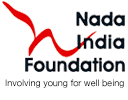Recovery from drug addiction: Peer action network for trauma-related to drugs, HIV/AIDS, violence and crime
Drug abuse has been prevalent in our society for long. Excessive usage of drugs leads to addiction and increased dependency on them, apart from causing physical ailments. The extent and usage of drugs spans from rural population to the urban, from defence to prison population and from adolescents to the aged. Drug consumers range demographically, socially, economically and in gender as well.
In spite of various awareness programmes by Govt. and NGOs indicating the repercussions on an individual and society, drug abuse continues to plague our society as a disease and the path to recovery for the addicted is full of hurdles. Relapse is a step which no one can evade during the recovery process.
For any recovering person, motivation and guidance are the two major pre-requisites. And who other than peer group can fulfil this requirement more effectively and efficiently.
Peer based initiatives
It is so because on a whole, belonging to the same age group, background, culture and/or social status, individuals easily confide in their peers. This leads to the developing of strong bonds with each other as the confidence and trust enables an individual to share all his/her thoughts, feelings, anxieties and ambitions. Apart from this, having faced a similar situation as that of his/her peers, everyone is able to empathise easily and provide motivation that helps in bringing about the change. With these thoughts in mind, Nada India Foundation initiated ARPAN (Association of Recovering Peer Action Network). ARPAN project is an action network of peer-based initiative for recovering people from disability and trauma related to drugs, HIV/AIDS, violence and crime. The project was nurtured to promote peer support and facilitate the setting up of minimum standards of care for those who want to organise rehabilitation services. The word ARPAN in Sanskrit means to present or to offer in dedication. Accordingly, Nada India offers its efforts for the promotion of health, education and productivity aiming at a drug free life.
As Mr. S. Vatsyayan, Chairman, Nada India, says, “I have seen these people grow like a child and with time accept the fact that success and failure are a part of life and there is somebody for them who has given them a right to fail. Each day of recovery brought to them confidence and helped them come out of the pain.”
Recovery process
The seeds of ARPAN were sown as early as 2000 when some of the recovering addicts/peer counsellors/educators, as part of Guru Shishya parmpara became part of drug treatment and rehabilitation process and later on established rehabilitation centres for their fellow members.
The idea was developed at Nada, keeping in mind the fact that when a person passes through a deep sense of pain, he/she tends to find an answer to problems in the recovery process of a peer. With the nurturing of ARPAN, various rehabilitation centres like Mukti, Nai Disha, Nai Kiran, Aman, Ujjala, Shreya, Prithvi Durga Foundation, Parivertan and many more mushroomed in different parts of Delhi, Punjab, Rajasthan, Haryana and Uttar Pradesh. Following the12-step programme along with peer based approach for recovery, these centres engage the inmates in yoga, medical care and counselling sessions to provide them an enabling environment for change.
Mr. Ashwini of Prithvi Durga Foundation and a recovering person himself says, “Peer led intervention plays an important role in the recovery process.” According to the need assessment survey by Nada, these centres need accreditation, recognition and technical inputs to build on the their identities.



Comments
Post a Comment